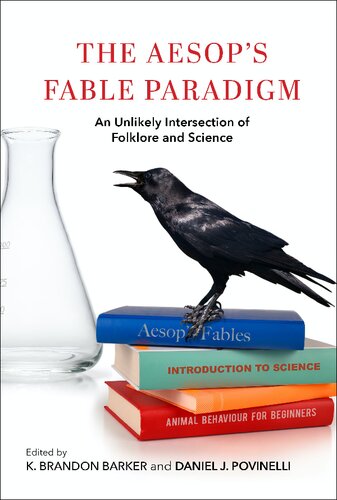

Most ebook files are in PDF format, so you can easily read them using various software such as Foxit Reader or directly on the Google Chrome browser.
Some ebook files are released by publishers in other formats such as .awz, .mobi, .epub, .fb2, etc. You may need to install specific software to read these formats on mobile/PC, such as Calibre.
Please read the tutorial at this link: https://ebookbell.com/faq
We offer FREE conversion to the popular formats you request; however, this may take some time. Therefore, right after payment, please email us, and we will try to provide the service as quickly as possible.
For some exceptional file formats or broken links (if any), please refrain from opening any disputes. Instead, email us first, and we will try to assist within a maximum of 6 hours.
EbookBell Team

4.0
26 reviewsThe Aesop's Fable Paradigm is a collection of essays that explore the cutting-edge intersection of Folklore and Science. From moralizing fables to fantastic folktales, humans have been telling stories about animals―animals who can talk, feel, think, and make moral judgments just as we do―for a very long time. In contrast, scientific studies of the mental lives of animals have professed to be investigating the nature of animal minds slowly, cautiously, objectively, with no room for fanciful tales, fables, or myths. But recently, these folkloric and scientific traditions have merged in an unexpected and shocking way: scientists have attempted to prove that at least some animal fables are actually true.
These interdisciplinary chapters examine how science has targetedthe well-known Aesop's fable "The Crow and the Pitcher" as their starting point. They explore the ever-growing set of experimental studies which purport to prove that crows possess an understanding of higher-order concepts like weight, mass, and even Archimedes' insight about the physics of water displacement.
The Aesop's Fable Paradigm explores how these scientific studies are doomed to accomplish little more than to mirror anthropomorphic representations of animals in human folklore and reveal that the problem of folkloric projection extends far beyond the "Aesop's Fable Paradigm" into every nook and cranny of research on animal cognition.